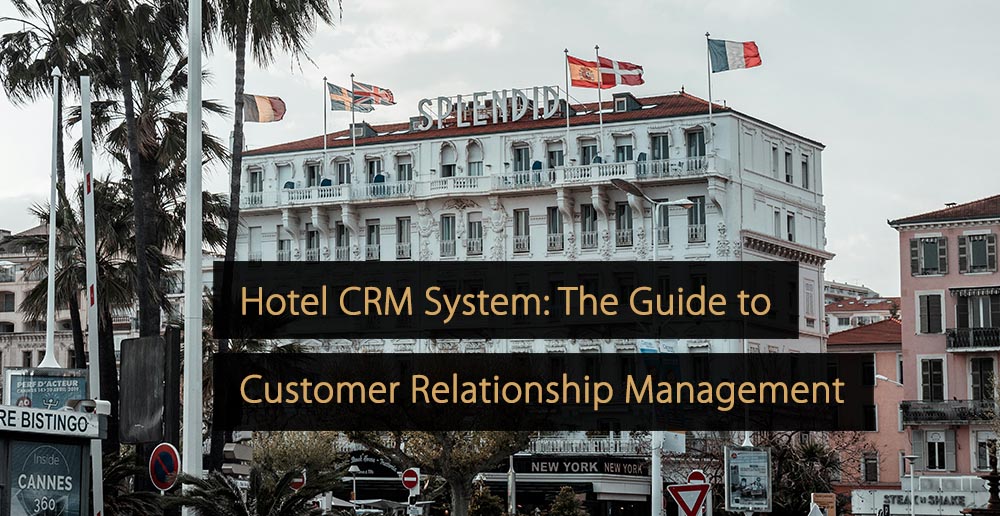I problemi del personale sono uno dei problemi principali nel settore dell’ospitalità e non esistono soluzioni rapide o semplici per questo problema. Mentre gli albergatori di tutto il mondo faticano a soddisfare le crescenti richieste degli ospiti nonostante la riduzione del personale, è tempo di svelare alcune verità sorprendenti sulla motivazione del personale. Continua a leggere per ottenere spunti stimolanti sulla carenza di personale alberghiero e scoprire quale approccio funziona meglio per assumere e mantenere motivato il personale dell'hotel.
Cosa ha causato la carenza di personale alberghiero?
L’indagine AHLA del 2022 ha rilevato che 97% degli hotel hanno subito carenze di personale, di cui quasi la metà ha riscontrato carenze gravi. Molte persone non sono tornate a lavorare nel settore alberghiero dopo la fine del lockdown. Alcuni hanno optato per lavori più gratificanti nel commercio al dettaglio o hanno scelto lavori online. Il denominatore comune era chiaro: cercare un migliore equilibrio tra lavoro e vita privata. Lavorare meno, viaggiare di più e dare priorità al tempo libero. La domanda logica successiva è: come possono gli hotel far sì che ciò accada?
4 modi per risolvere la carenza di personale e migliorare le assunzioni
Ecco quattro modi per ridurre la carenza di personale e aumentare la fedeltà dei tuoi dipendenti. Albergatori innovativi come Ruby Group ne impiegano già molti e il feedback è stato ottimo, soprattutto per quanto riguarda la flessibilità. Una lezione qui è adattarsi alle esigenze del personale invece di farli adattare ai propri obiettivi di profitto. Dimostra ai tuoi dipendenti che tieni al loro benessere, quindi la loro lealtà è naturale. Il profitto è rapido da seguire.
1. Offri orari di lavoro flessibili
I ruoli alberghieri sono in continua evoluzione, il che richiede agli hotel di adattare i propri modelli di personale. In nessun luogo questo è più pronunciato che nel settore delle pulizie, con l’aumento degli appartamenti serviti, dell’automazione e delle pulizie “opt-in” che ridefiniscono il ruolo lavorativo.
Per dare al proprio personale un senso di sicurezza, Ruby Group ha introdotto una settimana lavorativa di 35 ore con lo stesso stipendio, che si traduce in un aumento di stipendio di 12-20% e più tempo libero. Sono completamente flessibili quando si tratta di organizzare: alcune donne delle pulizie trascorrono cinque giorni alla settimana lavorando sette ore, mentre altre combinano le ore in modo diverso durante la settimana.
Dal punto di vista dell'hotel, un approccio flessibile offre un vantaggio competitivo, poiché può programmare i membri del team in base alle esigenze aziendali ed eliminare i tempi di inattività.
2. Introdurre pacchetti di benefit e piani di carriera
Aumentare i salari è una soluzione abbastanza semplice. Tuttavia, ridurrà rapidamente i flussi di entrate del tuo hotel senza influire sulla fidelizzazione del personale. Come mai? La verità è che gli hotel non possono far fronte a una carenza di manodopera senza migliorare l’equilibrio tra lavoro e vita privata e offrire anche formazione e sviluppo di carriera.
Inizia offrendo una settimana lavorativa più breve con orari flessibili e poi introduce un pacchetto di vantaggi: partecipazione agli utili, indennità per i trasporti pubblici, abbonamenti fitness, corsi di lingua, ecc. Contatta il tuo personale e chiedi loro di cos'altro avrebbero bisogno per migliorare la loro motivazione e benessere.
Segui le parole e diventa un datore di lavoro migliore in grado di affrontare la carenza di personale rimanendo umano. Questo non solo ti aiuterà a mantenere i tuoi dipendenti eccezionali, ma attirerà anche nuovi talenti eccellenti.
3. (Ri)Forma il tuo personale per ridurre al minimo il turnover
Un altro modo per ridurre la carenza di personale è implementare la gestione delle prestazioni attraverso una buona piattaforma operativa dell’hotel. Ciò ti aiuterà a identificare dove il tuo personale eccelle e dove potrebbe utilizzare sessioni di formazione aggiuntive. I manager esperti possono fare un ulteriore passo avanti riconoscendo il potenziale di riqualificazione dei membri del team in modo che possano ricoprire più ruoli e avanzare nella loro carriera.
Prendiamo ad esempio le pulizie. C'è un elenco schiacciante di cose da fare per i nuovi tirocinanti. Risparmia tempo e denaro preziosi introducendo liste di controllo digitali che li aiuteranno a salire di livello più rapidamente e li guideranno nel completare correttamente le loro attività. Le nuove governanti sapranno esattamente cosa fare in ogni stanza e saranno in grado di spuntare i compiti man mano che procedono, aumentando le loro possibilità di superare l'ispezione.
4. Sfruttare la fantastica tecnologia alberghiera per l'automazione
La tecnologia significa efficienza operativa. Automatizza e digitalizza i processi interni e l'esperienza degli ospiti ove possibile. Le possibilità sono infinite: software per la gestione delle pulizie, Check-in e check-out senza contatto, chatbot AI, codici QR sui menu, eCommerce nei ristoranti e robot negli hotel: semplificare le operazioni ti consentirà di fare di più con lo stesso team o con un team ridotto.
In combinazione con un PMS agile, la tecnologia automatizza o elimina attività noiose, come le ripetute ispezioni delle stanze. Ti consente inoltre di monitorare le prestazioni di ogni membro del team per fornire supporto quando necessario. Quando monitori le prestazioni del personale, cerca il potenziale di miglioramento invece di concentrarti su errori e punizioni. Un approccio di supporto crea fiducia e motivazione, aiutandoti a trattenere il personale per molto più tempo.
Ciò è particolarmente importante nelle pulizie, dove l’interazione con il personale è minima o nulla. I dati sulle pulizie sono complessi e dipendono da molti fattori (tipologia di struttura, ospiti, tempo...), quindi sarebbe un errore valutare le prestazioni dei tuoi addetti alle pulizie solo in base alla pulizia della stanza. Invece, una buona piattaforma operativa per hotel ti aiuterà a comprendere i dati e le persone che lavorano per te. Questo è il futuro del mantenimento di personale alberghiero eccellente.
Molti hotel sono ancora concentrati sui profitti e vedono il proprio personale come uno strumento che li aiuta a raggiungere gli obiettivi aziendali. Il successo sostenibile sarà possibile solo modificando questa mentalità affinché sia più incentrata sull’uomo. Dare priorità al personale è un investimento considerevole, ma si ripaga prima del previsto per gli hotel lungimiranti che considerano obiettivi aziendali a medio e lungo termine.
Altri suggerimenti per far crescere la tua attività
Revfine.com è la piattaforma di conoscenza leader per il settore dell'ospitalità e dei viaggi. I professionisti utilizzano le nostre intuizioni, strategie e suggerimenti pratici per trarre ispirazione, ottimizzare i ricavi, innovare i processi e migliorare l'esperienza del cliente.Esplora i consigli degli esperti su gestione, marketing, revenue management, operazioni, software e tecnologia nel nostro dedicato Hotel, Ospitalità, e Viaggi e turismo categorie.








Leave A Comment